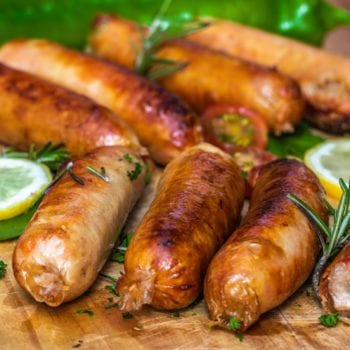Officials rush to prevent meat product ban between Ireland and GB

List of banned foods would include chilled minced beef, minced pork or sausages alongside poultry that is either frozen or chilled
25 November 2020
Last-minute talks by EU and UK officials are currently underway to prevent a potential two-way ban on foods including sausages, prepared meals and mince, between the island of Ireland and Great Britain.
Within EU food safety rules, animal-based products coming from outside the EU must be frozen, with the result that certain meat products, which are fresh or chilled, are not permitted.
Under the Northern Ireland protocol, it will still be operating within EU food safety rules from 1 January, meaning that the products would be prohibited from entering Northern Ireland from Great Britain.
In turn, the UK has indicated it will apply reciprocal restrictions on these foods from Ireland, as it has said it will replicate the EU’s food safety regime, including restrictions on certain food products.
However, a UK government spokesperson has said: “We will ensure that there is no ban on trade in sausages from Great Britain into Northern Ireland. We are working to find an appropriate solution through the Joint Committee process.”
The list of banned foods includes chilled minced beef, minced pork or sausages as well as poultry that is either frozen or chilled (stricter rules apply to poultry).
RTE reports that chilled prepared meals, such as meat lasagna, will be banned if they include uncooked meat and are chilled but not frozen. According to industry sources, broader restrictions could extend to foods including seed potatoes, seeds, breaded poultry, sausages, fresh mince, pork stuffing, marinated meat, barbeque products, meatballs, turkey meatballs, lamb mince, kebabs and flour with fortified additives.
Generally speaking, any meat products entering the EU must carry an export health certificate, signed off by a designated veterinary official in the exporting country. However, these are not available for prepared meat products which are not frozen.
Sources have said that, whether or not there is a ban, Irish vets could face a capacity problem as they would need to sign off on a high volume of export health certificates for Irish meat consignments going to the UK from 1 April.
1 April 2021 is the date from which the UK has stated it will start to apply its own food safety and animal health regime. RTE’s Tony Connelly reports London has indicated will effectively copy the EU’s food safety rules, including the use of export health certificates.



 Print
Print






Fans 0
Followers